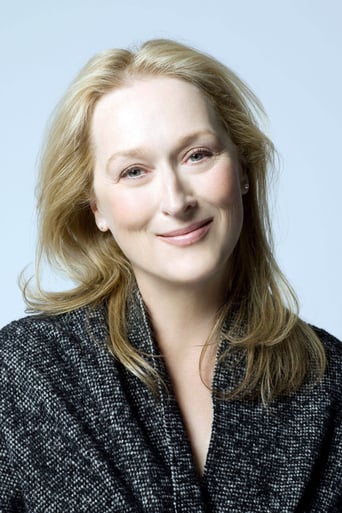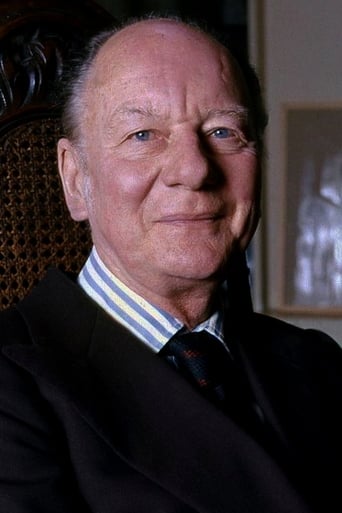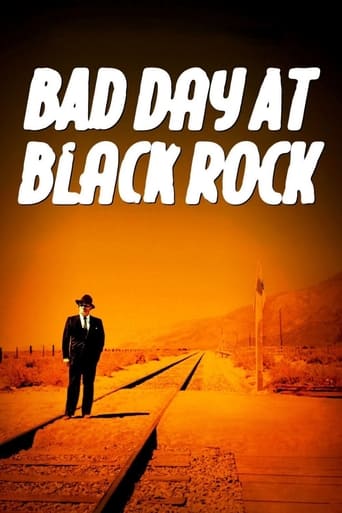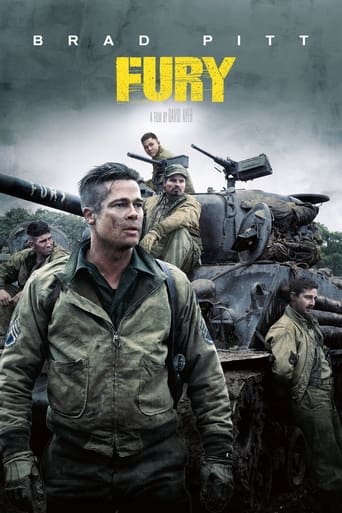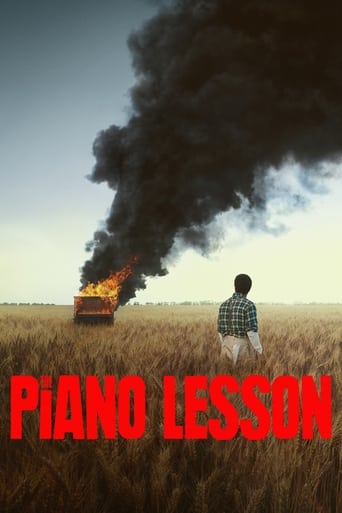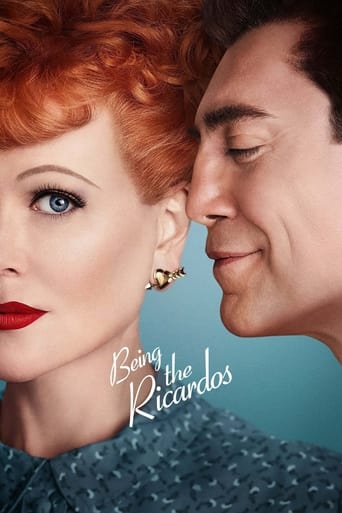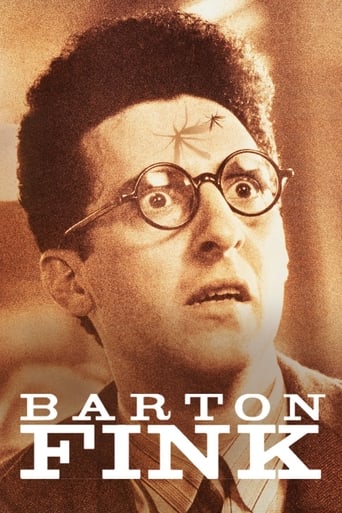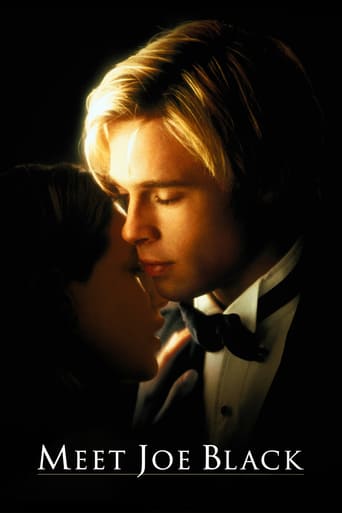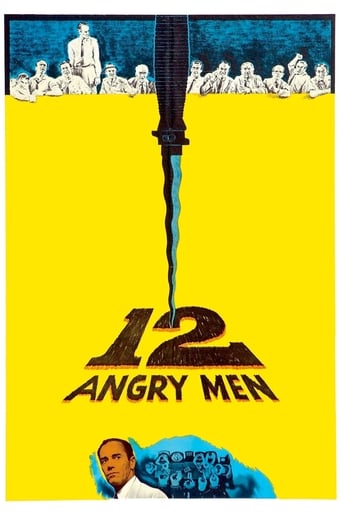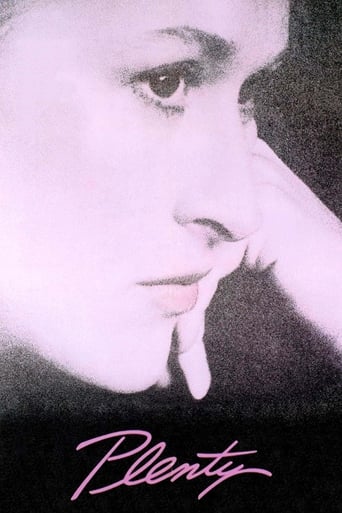
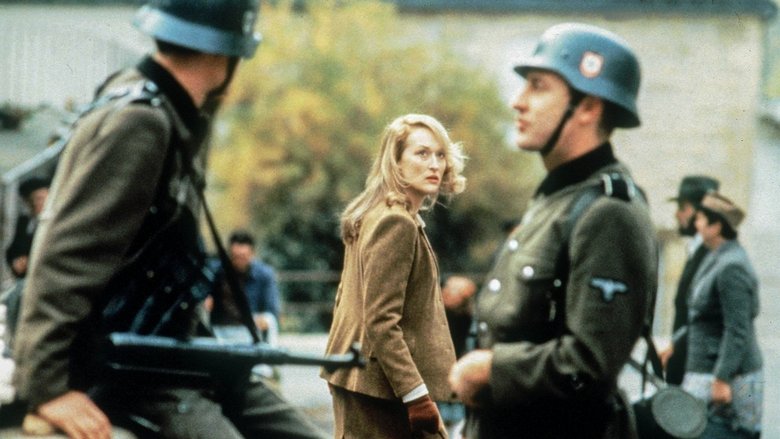
Plenty (1985)
David Hare's account of a one-time French freedom fighter who gradually realizes that her post-war life is not meeting her expectations.
Watch Trailer
Cast


Similar titles
Reviews
Strictly average movie
In truth, there is barely enough story here to make a film.
I didn’t really have many expectations going into the movie (good or bad), but I actually really enjoyed it. I really liked the characters and the banter between them.
The film may be flawed, but its message is not.
What must have seemed like a complex characterization is simply confusing in this Meryl Streep movie about an overly neurotic woman whose direction as a human being has no focus. She is Susan Traherne, who goes from Ally messenger in World War II to diplomat's wife in post-war England, all the while alienating practically everybody around her with the most bizarre behavior that seems to have no justification. Snippets of this woman's life are missing to properly flow from situation to situation, making the whole story a rather blurry mess. As Streep had risen to become the top dramatic actress in Hollywood, she was (and still is) mesmerizing. But it seems more like an acting exercises than an actual role to play, so it is no wonder that this film has seemed to have slipped into obscurity over her more known 80's films ("Sophie's Choice" and the same year's Best Picture, "Out of Africa").Only two of the supporting players (Tracy Ullman as an eccentric writer and Sir John Gielgud as Sir Leonard Darwin) really stand out, giving truly strong performances. Charles Dance, Sam Neill and Sting are the men in Streep's life, but they are easily swallowed up, both by the actresses' performance and the character's hunger to emotionally chew up and spit out each of her lovers. The film covers a lot of mid 20th Century history, from World War II to Queen Elizabeth's coronation (used as a backdrop for a sexual scene between a fully clothed Streep and Sting) and later the Suez Canal conflict. This is the type of film that might have better worked as a BBC or PBS mini-series to fully tie together the entire story to make Streep's character more understandable and sympathetic.
This much-overlooked British drama opens with, literally fades in on, her days in WWII France. It follows her through the next 15 or 20 years, and ends with an aching scene from a past day when she thought tomorrow seizes nothing but good things for her. But nothing else in her life is ever as valuable, as dignifying or as exciting as the war. She is, maybe, a little insane. She divulges in one scene that she has a considerable issue: "Sometimes I like to lose control." Fred Schepisi's obscure film stars Meryl Streep and it is a performance of daring delicacy. It is hard to play an irrational, maladjusted, quasi-suicidal woman with such tenderness or grace. She is oftentimes quite charming to be around for the other characters, and when she is letting herself fall short of restraint, she doesn't do it in the vein of those exclusive movie frenzy scenes but with a relatively pleasant imperativeness. When she returns to England after the war, she makes friends with a round-faced, grinning imp played by a refreshing Tracey Ullmann. Another is Charles Dance's foreign service officer who is initially charmed by her casual, free-spirited lifestyle, and then marries her and becomes her permanent aggrandizer, putting up a barricade of composure and practically divine patience around her tantrums. It is challenging to pigeonhole specifically what it is that disturbs Streep's character. Early on, David Hare's screenplay shepherds us to her own heuristic that after the valor and brazenness of the war, after the gallantry and the passion, it is beyond absurd to her to readjust back to normal life and endure the tedious small talk of civil commonality. Yet as the film proceeds in a clandestine manner of being episodic, we find there is something persistent, a little vicious, in the way she humiliates her husband at crucial times, constantly seeking to be tactless and incongruous. Ultimately, we gravitate toward his position when he eventually thunders that she is hateful and pitiless, and oblivious to those who have withstood her. But then there is an postlude, moistened by the misty twilight of the most dismal hour of fall, and there is such despondence in the way she and another character both become conscious that nothing will ever graze them again the way the war did. This bit part-filled movie is conclusively not a assertion concerning war, or foreign service, or middle-class British, but just the story of this lost woman who at one time lived profoundly, and now finds that she is barely even living. The performances grant one enthralling solitaire after another. Most of the pivotal instances come as different characters eclipse different scenes. Streep births a complete character around a woman who could have merely been a hit list of problems. Charles Dance has an unrewarding part, as her perpetually agonized husband who from the beginning seems like a very dull bureaucrat, but survives to show that he is respectable as well as foolish. Sting plays a commonplace young man who ineffectively tries to conceive Streep's child for her. John Gielgud has three small scenes and steals them all, which essentially is the story of his career. Plenty is written, acted and directed as a lather of refinement and delicate shrewdness, underneath which grows the revelation that life can often be futile, dull and depressing, and that there can be days, months, years, decades in accordance.
Meryl Streep is undoubtedly one of the greatest screen actresses of all time, but I sometimes wish that her talent for acting were matched by a talent for picking the right film. Although she never gives a bad performance, and rarely a mediocre one, she has found herself appearing in some mediocre films. Even in the eighties, probably the best decade of her career, she tended to alternate between the excellent ("The French Lieutenant's Woman", "Sophie's Choice", "Silkwood", "Out of Africa", "A Cry in the Dark") and the not-so-good. A romance between Streep and Robert de Niro, for example, might have seemed like an excellent premise for a film, but "Falling in Love" turned out a great disappointment."Plenty" is another of Streep's less successful ventures from this decade, although this British art-house movie did at least show more ambition than the typically bland Hollywood fare of "Falling in Love". The film is based on a stage play by the left-wing playwright David Hare. Streep plays the main character, Susan Traherne, an upper-class young Englishwoman who during World War II works as an underground courier in Nazi-occupied France. The work is dangerous, but the idealistic Susan, who is firmly convinced that she is fighting for a better world, finds it exhilarating. She has a passionate affair with Lazar, a British agent. There is a key scene, set at the end of the war, where Susan stands on a hilltop in beautiful French countryside, bathed in golden sunlight, and says, "There will be days and days and days like this." That scene on the hill is a flashback- in fact it is the last shot in the film. By this time we have already learnt that the post-war years have turned out to be far less rosy than Susan imagined. Nothing in her peacetime life can ever be as thrilling, or as fulfilling, as her wartime experiences. Her jobs as a shipping clerk and in advertising provide her with no satisfaction. She has an unsatisfactory affair with the working-class Mick and a disastrous marriage to Raymond Brock, a career diplomat. She tries to rekindle her affair with Lazar, but cannot recapture their wartime passion. She always lives under the shadow of depression and mental instability.David Hare wrote about the film that it was called "Plenty" because it depicts the way in which "the years of austerity in the late forties are followed by the years of plenty in the mid-fifties, and it's a recurring feeling in the film that it is money that rots people". This could have been an interesting theme- the contrast between the idealism of the forties and the complacent materialism of the fifties- but it never really comes through in the film. Indeed, some commentators have seen quite the opposite message in the film, which they interpret as showing how wartime hopes of greater material prosperity for the working class were to be disappointed in the fifties. This message, however, does not really come through either. There is not much in the film about either middle-class wealth or working-class poverty; much of the film's most overtly political content concerns the Suez crisis of 1956.There are attempts to draw analogies between the personal lives of the characters and the wider society of which they are a part, but the film is really about Susan and her fragile personality. She comes across as an incredibly selfish and self-centred individual; what worries her is not the state of British society or the lot of the working class but rather the fact that her own life is not as exciting as it once was. The collapse of her marriage to Raymond results from the fact that it is her increasingly eccentric behaviour which has damaged his career and her refusal to live abroad which has prevented him from being offered foreign postings.There are some good acting performances in the film, but they mostly come in cameo roles, such as John Gielgud as Sir Leonard Darwin, the Foreign Office mandarin who resigns over Suez, or Ian McKellen as Sir Andrew Charleson, the urbane and supercilious diplomat who succeeds Darwin as Raymond's superior, or Tracey Ullman as Susan's friend Alice. Streep's own performance is technically good- her English accent is flawless, even better than in "The French Lieutenant's Woman"- but she never succeeds in arousing our sympathy for her self-obsessed character. "Plenty" could have been an interesting study of British society during and after World War II, but ends up as a cold, uninvolving character study of a neurotic woman. 5/10
"Plenty" is a film I watch as often as other people watch "It's A Wonderful Life" or the first "Terminator", yes, I know, I must be a very strange guy. I was a teenager when I saw "Plenty" on stage at the National Theater in London. I remembered the play vividly, Kate Nelligan's performance was sensational. Fred Schepsi's "Plenty" has a totally unique life of its own. We're allowed into Susan's mind and Susan has Meryl Streep's face. Her performance makes her character's intellect visible, cinematic. Intimidating, fascinating, extraordinarily beautiful performance. I think David Hare has written here one of the best female characters I've ever seen and Meryl Streep strips it of every pretense. She can lie even to herself but not to us. It is mesmerizing at times. A ping pong ball going through the character's brain as she listens. Alone, so alone in the world. She never expresses it with words although she, I think, is totally aware of it. The infuriating sense of being incapable to adapt, to belong. Wanting and not wanting. Mesmerizing! As if this wasn't enough, Tracey Ullman, Charles Dance, Sting, Ian McKellen and John Gielgud giving, perhaps one of the best film performances during the final part of of his life I felt rather lonely in my love for this film until I started reading some of the comments posted here and realized I wasn't all alone in the world. Nice to meet you all.


